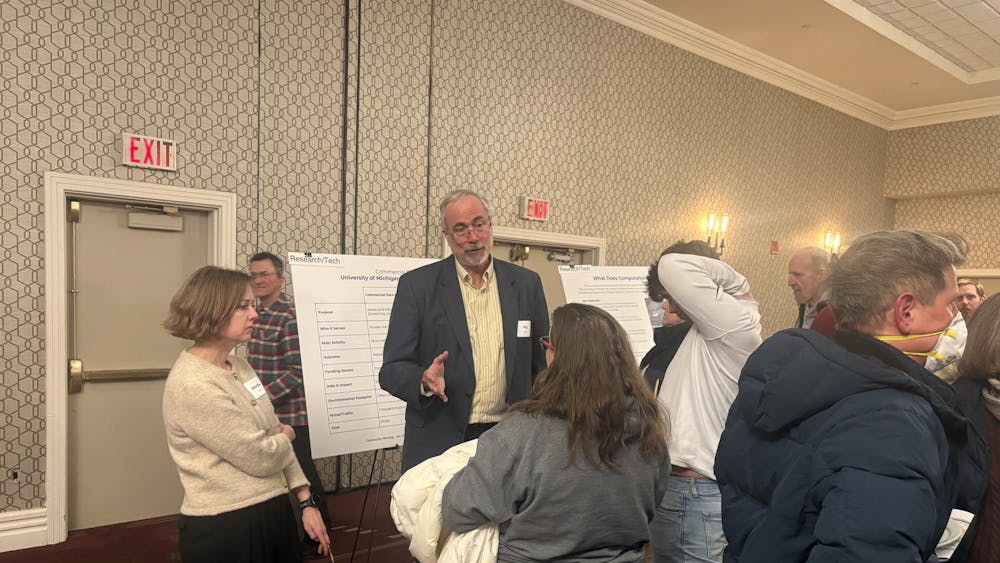Decriminalization of the recreational use of marijuana might be on the ballot this November in Detroit, and perhaps statewide.
The Michigan Court of Appeals ruled in favor of The Coalition for a Safer Detroit in its lawsuit against the Detroit Election Commission on February 10. The coalition filed the lawsuit after the commission voted to exclude a decriminalization proposal from the 2010 ballot, despite a successful petition to include it.
In the 2-1 decision, the court declared the decriminalization proposal should have appeared on the 2010 ballot. This ruling will force the proposal to appear on the next viable Detroit election ballot.
“Right now, we’re preparing for it to appear in the August primary election,” Beck said.
Krystal Crittendon, a member of the Detroit Election Commission, said the commission rejected the proposal because it was invalid due to state legislation prohibiting marijuana.
“There’s a concept called preemption,” said Crittendon, a member of the Detroit Election Commission. “Federal law is supreme over state law and state law is supreme over local law.”
Crittendon explained a marijuana decriminalization ordinance would be cut down in Michigan courts,
even if it passed the election. They decided it was a “symbolic” proposal, which prohibited them from passing it, under Michigan law.
The proposal is designed to change Detroit City Code. According to the current code, under the section called Controlled Substances: Division 1, having possession of a controlled substance, like marijuana, “shall be punished by a fine not to exceed five hundred dollars ($500.00), or by imprisonment not to exceed ninety (90) days, or by both.”
The proposal would specifically change the applicability language in that section of Detroit City Code to include, “None of the provisions of this article shall apply to the use or possession of less than one ounce of marijuana, on private property, by a person who has attained the age of 21 years.”
How this will actually apply to the real world is still a little uncertain. If the city code is changed, the City of Detroit will no longer be able to collect any money from fines assessed as a result of marijuana possession charges.
“If you get arrested and if you get fined $500, that $500 has to go to the state, the city won’t be able to collect any of that money,” Beck said.
Marijuana will remain illegal, however, under state and federal law and thus Beck said Detroit Police could still arrest someone for having marijuana, because they are still allowed, though not obligated, to enforce Michigan State laws.
However, marijuana use could become legalized statewide if efforts by the Committee for a Safer Michigan are successful. Last year, it began a statewide petition to legalize marijuana at the state level.
Sebastian Swae-Shampine, a junior at University of Michigan and member of the committee, said that the petition has been under way since January, with 6000 signatures already collected.
“I’m a little bit hesitant, the fact that we’ve only collected 6000 is not quite there. But the rate that we’ve been collecting signatures has been growing exponentially since January,” Swae-Shampine said.
The petition needs 322,000 signatures to make it to Lansing. If it makes it to Lansing, it could make the road easier for local petitions like the Detroit and Ypsilanti petitions. The Committee for a Safer Michigan plans to submit this petition after July 9th.
A campus chapter of Students for Sensible Drug Policy was recently established at Eastern Michigan University. SSDP is a national organization that lobbies for the reformation of drug legislation.
EMU SSDP Vice President Andrew Hoepner said the government’s attempts to prohibit substances like marijuana have been unsuccessful and that changes to drug education and drug policy are necessary.
“The drug war has failed and prohibition doesn’t work,” Hoepner said, “so the goal of the group is to educate the community and advocate change in drug policy.”
Hoepner also hinted that a petition similar to the one in Detroit, is in the works for Ypsilanti right now. This petition is not to decriminalize marijuana, but to make marijuana enforcement a “low law enforcement priority,” Hoepner said.
Cullen McNamara, a secondary education major, said “I’m unaffected, I’m not gonna go travel to Detroit to smoke pot, but on the other hand I don’t see anything wrong with people who would.”
Despite her support for decriminalization of marijuana use, Jess Klein, a lecturer in the sociology, anthropology and criminology department at EMU, said she doesn’t think it should be legalized.
“I support decriminalization, but not legalization,” said Klein. “I think [marijuana] is extremely misused medicinally… people who are dying, who are terminally ill, to ease their pain—they should be legally allowed to use the substance, but I don’t think people with anxiety or a leg injury should be getting their cards left and right. I think its irresponsible, medically.”









